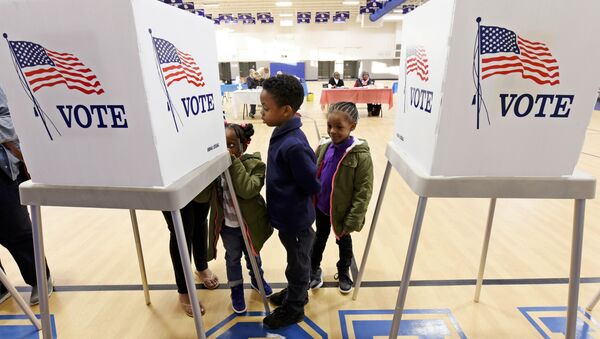"The Russian government directed extensive activity, beginning in at least 2014 and carrying into at least 2017, against US election infrastructure at the state and local level," the report said. "The Committee has seen no evidence that any votes were changed or that any voting machines were manipulated."
Earlier this month, Russia’s ambassador to the US said he expected to see claims about ‘Russian meddling’ in the US electoral process “multiply” ahead of the 2020 race, notwithstanding US investigators’ abject failure to prove any of the claims about Russian interference in the 2016 campaign.
Russia has repeatedly denied US allegations that it interfered in the vote, calling the accusations absurd and politically motivated.
The Intelligence Committee claimed it found ample evidence to suggest that the Russian government was developing and implementing capabilities to interfere in the 2016 US election, including undermining confidence in the country’s democratic institutions and voting processes.
The report also said Russian-affiliated cyber actors gained access to election infrastructure systems across two US states, but found no evidence of Russian actors attempting to manipulate vote tallies on Election Day.
The Russian activities demand renewed attention to vulnerabilities in US voting infrastructure given that some of them remain in place despite the extensive attention given to the issue since 2016, the Intelligence Committee said.
To assist in addressing the vulnerabilities, Congress in 2018 appropriated $380 million in grant money for US states to bolster cybersecurity and replace vulnerable voting machines, the report noted.
The Intelligence Committee suggested in the report that when the funds are spent, Congress should evaluate the results and consider an additional appropriation to address remaining insecure voting machines and systems.
Committee Chairman Richard Burr said that Thursday’s instalment builds upon the unclassified summary findings released in May 2018.
The panel, he added, will also release final volumes examining the Intelligence Community Assessment (ICA) of Russian alleged meddling and the Obama Administration’s response in addition to the role of social media disinformation campaigns. These instalments are expected to be released this year.
Over the last two and half years, he added, the Committee’s work has spanned more than 15 open hearings, 200 witness interviews, and almost 400,000 documents, Burr said in a statement.


